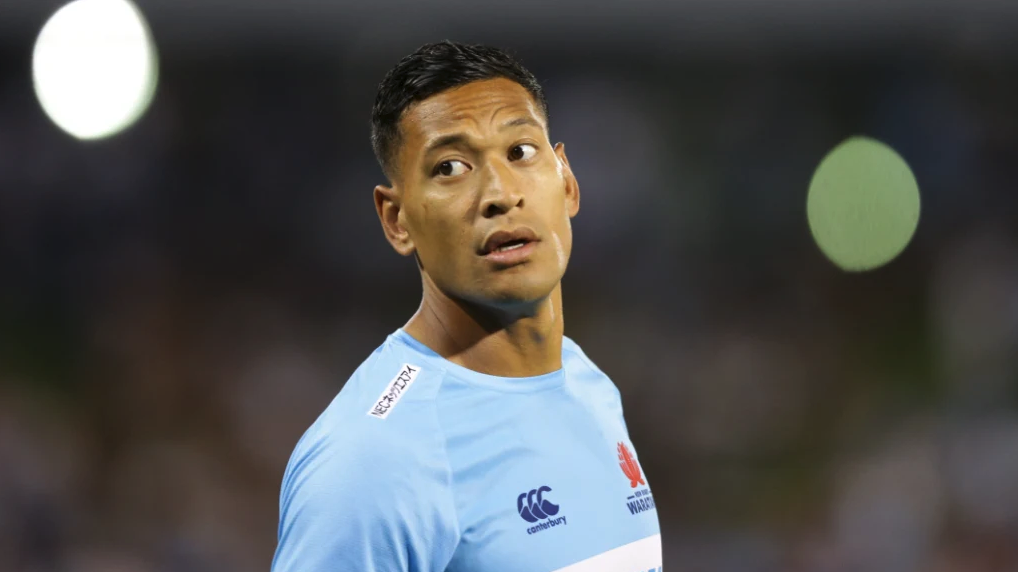I’d love to have a beer with Israel Folau. Or at least I wish I could have done that before he started posting on Instagram what he believes is central to the message of Christianity.
If I’d had that opportunity, I would have urged him to adopt an entirely different posture towards the culture he is hoping to influence. In the current climate of distrust, polarisation and simplistic sloganeering, I’d want to convince him of the need for thoughtfulness and sensitivity to how his words will be heard. And what the potential damage of those words might be.
For what it’s worth, I would have stressed that good communication matters, that social media is perhaps the worst possible place to try to explain complex religious concepts and that Bible verses ripped out of context and lists of “sinners” bound for hell, without any sense of the broader story, distorts the core message of the text and its offer of abundant life for every person who would accept it.

But sadly, that opportunity has passed, and it looks as though Folau’s rugby career will be over. I feel sorry for him. He’s the subject of a mob justice that has determined that not only is the content of his post hateful but so too is his motivation. I’m sure that’s not the case. The comedian, magician and outspoken atheist Penn Jillette once famously said that he doesn’t respect religious people who don’t proselytise. “How much do you have to hate somebody to believe everlasting life is possible and not tell them that?” he said. According to Jillette, something being “socially awkward” is not a good reason to keep quiet when the stakes are as high as divine judgment.
Whatever you think of Folau’s theology, or method of communication, it seems odd to me that people don’t recognise what is moving him to act, especially given the comprehensive list of those deemed at risk of perdition. Folau is, after all, a footballer and not a moral philosopher, or theologian or even a nuanced writer.
But the whole sorry saga of Folau’s online antics does present some starkly challenging questions about the kind of society we want to become. Long-time gay activist Dawn Grace-Cohen responded to the Folau story by saying that celebrating diversity also must mean celebrating “diversity of opinion”. While, in her view, Israel Folau’s views are objectionable—he thinks she’s a sinner, she considers him a Neanderthal—she writes, “I should be able to say so and keep my job. So should he”. In other words, an authoritarian atmosphere of silencing people who hold views that we find ludicrous, objectionable, or even hurtful, can become dangerous for all of us. Better to keep conversations going with those we disagree with, rather than shut them down and drive their views underground.
Given the repeated “atrocities” committed by footballers who continue to play the game after a minor sanction, it’s hard to escape the feeling that Folau has found himself a modern heretic to a particular kind of orthodoxy.
Is this the kind of society we want to live in? Os Guinness, the author and social critic, writes about three possible options of the kind of “public square” we can choose, two of which he says are bad. The “sacred public square” is one where one religion is preferred over all others, is “established” or is even a monopoly. Such a model is unjust because those who don’t share the religion are second class citizens. Think Iran, Pakistan, or Myanmar.
The “naked public square” on the other hand, in removing all religion, is equally unjust because it leaves no room for the faithful. Stalinist Russia or contemporary North Korea illustrate the problem.
True inclusiveness and diversity must make room for many different worldviews.
An alternative middle way is, according to Guinness, what he calls the “civil public square”, where people of all faiths and none, are free to enter into public life on the basis of their faith (or lack of it). The crucial qualifier in this model is that they do so within an agreed framework of what is just and fair for everybody else too. A good understanding of rights, responsibilities and respect are essential qualities for such a model to work. The Israel Folau case would test such a framework.
Working out what true tolerance will look like in a liberal democracy is complex. As tens of thousands of displaced people around the world look at Australia as an attractive destination of freedom and opportunity, and many Australians rightly and admirably advocate for their acceptance, the question remains as to what kind of welcome they will receive when they get here. Remembering that the vast majority of new arrivals from non-Western countries will be religious, and very often conservatively religious. They will typically hold views, especially on issues of morality and sexual ethics, that are clearly not in sync with contemporary Australian culture. How will we deal with that awkwardness? True inclusiveness and diversity must make room for many different worldviews. And it’s all of us, not just Rugby Australia, who will have to navigate these complexities, if we are going to cultivate an environment that we say can be a home for all.
Simon Smart is the executive director of the Centre for Public Christianity.
This article first appeared in The Sydney Morning Herald.